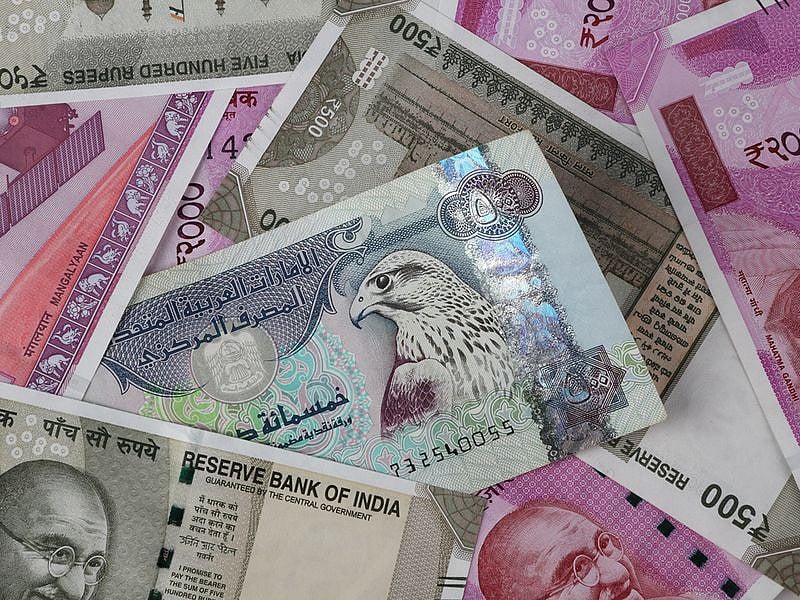How $100,000 H-1B fee can hurt Indian rupee, but help UAE expats remit more
UAE remains India’s top remittance source; funds safe despite Trump's H-1B fee hike in US

Dubai: For the millions of Indians living in the UAE, sending money back home is more than routine — it’s a lifeline for families, businesses, and investments across India. Now, US President Donald Trump’s sweeping changes to the H-1B visa program are raising fresh concerns about how long this lifeline will stay strong.
Last week, Trump ordered a hefty $100,000 application fee for new H-1B visas, targeting the skilled-worker program long used by US tech firms. The impact is set to fall hardest on Indians: nearly 70% of H-1B holders are from India, many working through the country’s $280 billion IT services industry.
Why does this matter to the Indian community in the UAE? Because remittances — the money Indians abroad send back home — are a vital pillar of India’s economy. The US alone accounts for nearly $35 billion a year, or 28% of all inflows, according to Citigroup. Any disruption to that flow has ripple effects on the rupee, the economy, and families waiting for money transfers.
'Sounding alarm'
Economists are already sounding the alarm. “As the number of H-1B visa holders from India declines in future years, this will reduce the remittances back to India,” JP Morgan’s Toshi Jain said in a note. In a worst-case scenario, if Indians applying for H-1Bs fell to zero, annual remittances could shrink by about $400 million.
That risk comes at a delicate time. The rupee, already one of Asia’s worst-performing currencies this year, slipped to 88.20 per dollar in early trading Monday. For UAE-based expats, a weaker rupee can stretch dirhams further when sending money home — but it also signals deeper economic pressures that could weigh on jobs, growth, and investments in India.
The fallout is already visible on markets. Shares of Tata Consultancy Services and Infosys, India’s IT giants, slid more than 3% on Monday. The IT services sector employs nearly six million professionals worldwide and contributes over 7% to India’s GDP, according to industry body Nasscom.
Sonal Varma of Nomura summed up the concern: Trump’s visa policies “increase medium-term growth risks” for India, putting pressure on New Delhi to stimulate domestic demand.
Silver lining?
Still, there may be a silver lining. The steep US visa costs could push global firms to expand their technology hubs in India instead. Microsoft, Google, and Morgan Stanley already run large capability centers in Bengaluru and Hyderabad — a trend that may accelerate if hiring in the U.S. becomes costlier. That could open new opportunities for Gulf-based Indians looking to return or diversify career options closer to home.
India’s Commerce Minister Piyush Goyal is currently in Washington to iron out trade frictions — including Trump’s recent 50% tariffs on Indian goods. But for UAE NRIs, the question remains: will fewer H-1B visas mean a hit to India’s remittances, or will it mark the start of a new era where India itself becomes the hub for global tech talent?
Sign up for the Daily Briefing
Get the latest news and updates straight to your inbox
Network Links
GN StoreDownload our app
© Al Nisr Publishing LLC 2026. All rights reserved.
